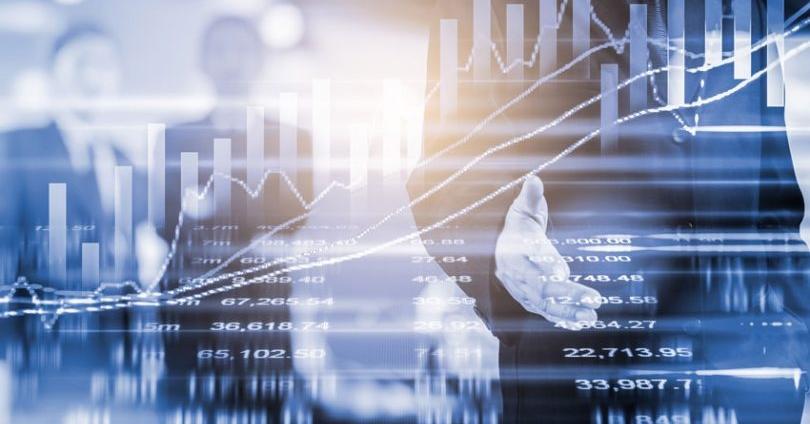Are you curious to know what is FDX? You have come to the right place as I am going to tell you everything about FDX in a very simple explanation. Without further discussion let’s begin to know what is FDX?
What Is FDX?
In the ever-evolving landscape of technology, acronyms often emerge as enigmatic gateways to innovations that shape the digital future. Among these, FDX stands out as a key player, representing the concept of Frictionless Data Exchange. This blog aims to demystify FDX, exploring its significance, applications, and the transformative potential it holds in streamlining data exchange across diverse platforms.
Decoding FDX – Frictionless Data Exchange:
FDX, or Frictionless Data Exchange, epitomizes a paradigm shift in the way data is shared, accessed, and utilized across digital ecosystems. At its core, FDX seeks to eliminate the hurdles, or “friction,” associated with data exchange, fostering seamless connectivity and collaboration in the digital realm.
Key Components Of FDX:
- Standardization: FDX champions the standardization of data formats and protocols, ensuring that information can be comprehensively understood and utilized across different systems and platforms.
- Interoperability: Interoperability lies at the heart of FDX, enabling disparate systems and applications to communicate effortlessly with each other. This promotes a cohesive and integrated digital environment.
- Data Accessibility: FDX prioritizes making data easily accessible, breaking down silos that often hinder information flow. This accessibility enhances the efficiency of data-driven processes and decision-making.
- Security and Privacy: While promoting openness and accessibility, FDX places a significant emphasis on maintaining robust security measures and respecting user privacy. It seeks to establish a balance between data sharing and safeguarding sensitive information.
Applications Of FDX:
- Financial Services: FDX has found significant application in the financial sector, where seamless data exchange is paramount for services like open banking. It facilitates secure sharing of financial data between banks, fintech companies, and other financial institutions.
- Healthcare: In the healthcare industry, FDX can play a pivotal role in interoperability among diverse systems, ensuring that patient data can be securely and efficiently shared between healthcare providers, laboratories, and other stakeholders.
- IoT (Internet of Things): FDX is integral to the functioning of IoT ecosystems, where diverse devices need to exchange data seamlessly. This enhances the overall efficiency and responsiveness of interconnected devices.
- Smart Cities: FDX contributes to the development of smart cities by enabling frictionless data exchange between various municipal systems, fostering improved urban planning, traffic management, and public services.
Get more information about cast on Starcasto.
The Future Implications Of FDX:
As FDX continues to gain traction, its future implications are profound:
- Innovation Acceleration: By reducing the barriers to data exchange, FDX paves the way for accelerated innovation, as developers and businesses can more easily leverage and build upon existing data sources.
- Enhanced User Experiences: FDX contributes to creating more seamless and integrated digital experiences for users, whether in financial transactions, healthcare interactions, or IoT applications.
- Cross-Industry Collaboration: The widespread adoption of FDX can stimulate increased collaboration between industries, fostering new partnerships and opportunities for cross-industry data exchange.
Conclusion:
FDX, or Frictionless Data Exchange, emerges as a transformative force in the digital realm, heralding an era where data flows seamlessly across diverse platforms and industries. As this paradigm takes root, the potential for innovation, collaboration, and enhanced user experiences is vast, promising a future where the exchange of information becomes not only effortless but also secure and privacy-conscious. FDX is more than an acronym; it represents a vision for a digitally connected world where data becomes a catalyst for positive change and progress.
FAQ
What Is FDX In Finance?
The Financial Data Exchange (FDX) is a nonprofit organization that is dedicated to unifying the financial industry around a common, interoperable and royalty-free standard for the secure access of user permissioned financial data, aptly named the FDX API.
What Is The FDX Used For?
The Financial Data Exchange (FDX) is a nonprofit dedicated to unifying the financial industry around a common, interoperable, royalty-free standard for secure and convenient consumer and business access to their financial data.
What Is FDX Money?
FDX is the global open finance ecosystem. Join over 200 financial institutions, financial data aggregators, fintechs, industry utilities, payment networks, consumer groups, financial industry groups, service providers and other stakeholders defining the technical standards for open finance-data sharing.
What Does FDX Mean In Banking?
What is the Financial Data Exchange? The Financial Data Exchange (FDX) is driving open banking adoption in the U.S. and Canada by providing standard tools for secure and reliable consumer data access.
I Have Covered All The Following Queries And Topics In The Above Article
What Is Fdx Movie
What Is The Stock Price Of Fdx
What Is Fdx File
What Is An Fdx File
What Is Fdx In Banking
What Is Fdx Crypto
What Is Fdx In Networking
What Is Fdx Certification
What Is Fdx Api
What Is Fdx File
Fdx Api Specification
Bian Vs Fdx
What Is Fdx
